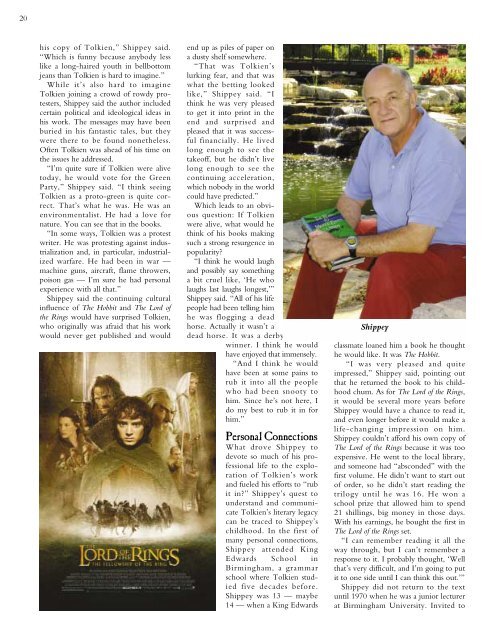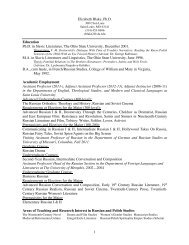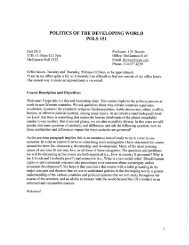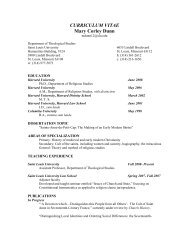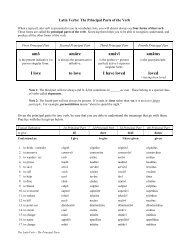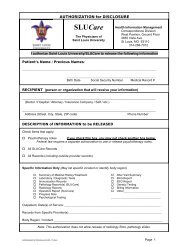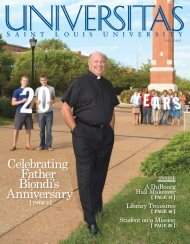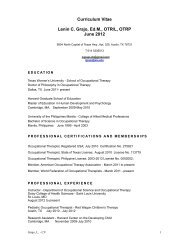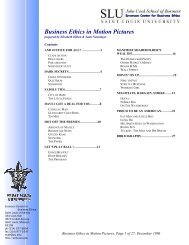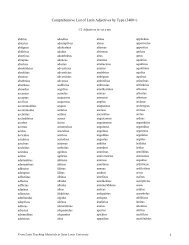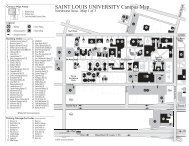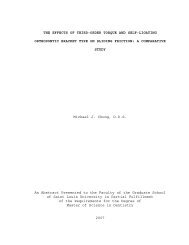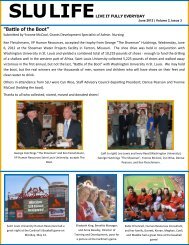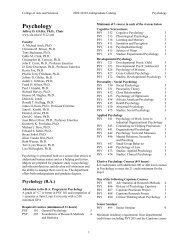You also want an ePaper? Increase the reach of your titles
YUMPU automatically turns print PDFs into web optimized ePapers that Google loves.
20<br />
his copy of Tolkien,” Shippey said.<br />
“Which is funny because anybody less<br />
like a long-haired youth in bellbottom<br />
jeans than Tolkien is hard to imagine.”<br />
While it’s also hard to imagine<br />
Tolkien joining a crowd of rowdy protesters,<br />
Shippey said the author included<br />
certain political and ideological ideas in<br />
his work. The messages may have been<br />
buried in his fantastic tales, but they<br />
were there to be found nonetheless.<br />
Often Tolkien was ahead of his time on<br />
the issues he addressed.<br />
“I’m quite sure if Tolkien were alive<br />
today, he would vote for the Green<br />
Party,” Shippey said. “I think seeing<br />
Tolkien as a proto-green is quite correct.<br />
That’s what he was. He was an<br />
environmentalist. He had a love for<br />
nature. You can see that in the books.<br />
“In some ways, Tolkien was a protest<br />
writer. He was protesting against industrialization<br />
and, in particular, industrialized<br />
warfare. He had been in war —<br />
machine guns, aircraft, flame throwers,<br />
poison gas — I’m sure he had personal<br />
experience with all that.”<br />
Shippey said the continuing cultural<br />
influence of The Hobbit and The Lord of<br />
the Rings would have surprised Tolkien,<br />
who originally was afraid that his work<br />
would never get published and would<br />
end up as piles of paper on<br />
a dusty shelf somewhere.<br />
“That was Tolkien’s<br />
lurking fear, and that was<br />
what the betting looked<br />
like,” Shippey said. “I<br />
think he was very pleased<br />
to get it into print in the<br />
end and surprised and<br />
pleased that it was successful<br />
financially. He lived<br />
long enough to see the<br />
takeoff, but he didn’t live<br />
long enough to see the<br />
continuing acceleration,<br />
which nobody in the world<br />
could have predicted.”<br />
Which leads to an obvious<br />
question: If Tolkien<br />
were alive, what would he<br />
think of his books making<br />
such a strong resurgence in<br />
popularity?<br />
“I think he would laugh<br />
and possibly say something<br />
a bit cruel like, ‘He who<br />
laughs last laughs longest,’”<br />
Shippey said. “All of his life<br />
people had been telling him<br />
he was flogging a dead<br />
horse. Actually it wasn’t a<br />
dead horse. It was a derby<br />
winner. I think he would<br />
have enjoyed that immensely.<br />
“And I think he would<br />
have been at some pains to<br />
rub it into all the people<br />
who had been snooty to<br />
him. Since he’s not here, I<br />
do my best to rub it in for<br />
him.”<br />
Personal Connections<br />
What drove Shippey to<br />
devote so much of his professional<br />
life to the exploration<br />
of Tolkien’s work<br />
and fueled his efforts to “rub<br />
it in?” Shippey’s quest to<br />
understand and communicate<br />
Tolkien’s literary legacy<br />
can be traced to Shippey’s<br />
childhood. In the first of<br />
many personal connections,<br />
Shippey attended King<br />
Edwards School in<br />
Birmingham, a grammar<br />
school where Tolkien studied<br />
five decades before.<br />
Shippey was 13 — maybe<br />
14 — when a King Edwards<br />
Shippey<br />
classmate loaned him a book he thought<br />
he would like. It was The Hobbit.<br />
“I was very pleased and quite<br />
impressed,” Shippey said, pointing out<br />
that he returned the book to his childhood<br />
chum. As for The Lord of the Rings,<br />
it would be several more years before<br />
Shippey would have a chance to read it,<br />
and even longer before it would make a<br />
life-changing impression on him.<br />
Shippey couldn’t afford his own copy of<br />
The Lord of the Rings because it was too<br />
expensive. He went to the local library,<br />
and someone had “absconded” with the<br />
first volume. He didn’t want to start out<br />
of order, so he didn’t start reading the<br />
trilogy until he was 16. He won a<br />
school prize that allowed him to spend<br />
21 shillings, big money in those days.<br />
With his earnings, he bought the first in<br />
The Lord of the Rings set.<br />
“I can remember reading it all the<br />
way through, but I can’t remember a<br />
response to it. I probably thought, ‘Well<br />
that’s very difficult, and I’m going to put<br />
it to one side until I can think this out.’”<br />
Shippey did not return to the text<br />
until 1970 when he was a junior lecturer<br />
at Birmingham <strong>University</strong>. Invited to


